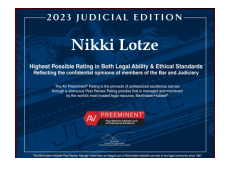During the 21st century, national “problem-solving” strategy has become popular with courts that are now attempting to tackle mounting social problems rather than punish first time or minor offenders.
Washington, D.C.’s mental health diversion court is one of a dozen across the country which allows eligible people charged with an eligible offense to seek treatment rather than punishment
Another D.C. Superior Court diversion court is drug court. The former prostitution (or “John” court was discontinued.
Superior Court Judge Zoe Bush, head of the Family Court division in D.C., helped design the mental health diversion program. Many of the offenses she saw time and again were children being arrested for smoking marijuana in an attempt to self-medicate for an undiagnosed mental health problem.
“If you just get the kids to stop smoking, that anxiety and depression and trauma is still untreated,” Bush says. “You really want to get to the underlying problem that they are self-treating and self-medicating. If you do that, you’re getting them to adjust better at home, at school and in the community.”
Diversion Programs in Washington D.C.
In order to be eligible for most diversion programs in Washington D.C., the individual must be a first-time offender and have committed an offense which the prosecutor’s office deems diversion eligible.
Stet Docket
Though rare, a case put on “stet docket” is suspended for a period of time. Should the defendant stay clean and out of trouble, charges are dismissed. If the defendant is re-arrested, however, the government may proceed with persecution.
Deferred Prosecution Agreement
Also known as a DPA, prosecution will delay the charges against an individual for a pre-determined amount of time (typically 4 to 6 months). The defendant must fulfill a set of conditions, which typically includes community service. Should the DPA be successfully completed, the charges will be dismissed and the accused will have no conviction on his or her record. If the person fails, however, the government can prosecute the criminal charges.
Deferred Sentencing Agreement (DSA)
The defendant in a DSA waives his or her trial rights and pleads guilty to the charges. The court schedules a sentencing for 6 months to a year into the future. The defendant has a chance to complete the conditions of the DSA. If completed, the defendant can withdraw his or her guilty plea and charges are dismissed. If not, they are immediately convicted.
Even individuals who may not qualify for these above eligibility programs can seek to have their records expunged following the successful resolution of the matter.
If you have been accused of a crime, our Washington D.C. criminal attorneys at the law office of Lotze Mosely LLP can help. We invite you to call us today at (202) 393-0535 to arrange an initial consultation.













